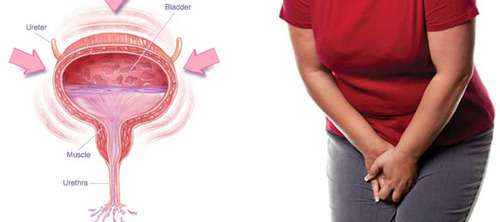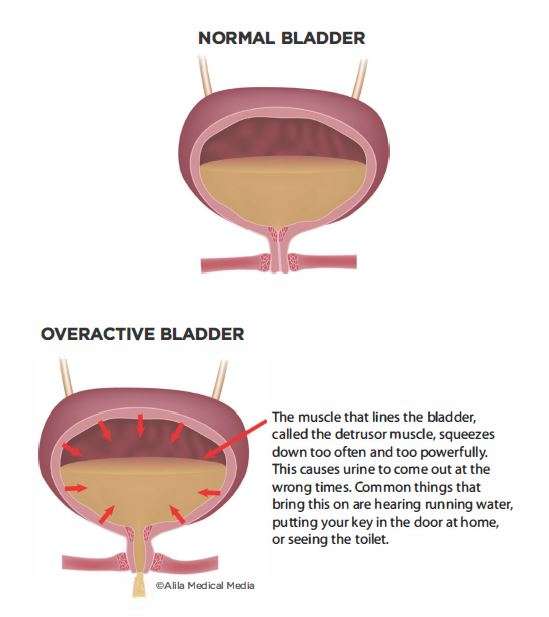Questions Your Doctor Will Ask
If you decide to make an appointment to consult your urologist regarding nocturia, the doctor will likely have multiple questions for you in order to properly diagnose. Having the answers to the following questions ready will help you and your doctor quickly develop the right treatment plan:
The more detail you have, the more helpful it is for the physician in making a diagnosis and finding the root cause of the issue.
Bottom Line: Nocturia should be investigated to determine its cause, which may often be related to conditions other than urinary tract issues. Nighttime urination is not only bothersome, but may also pose real health risks. Chronically disturbed sleep can lead to a host of collateral wellness issues.
If you are routinely waking up at night to urinate, especially if it is happening more than once per night, we recommend setting up an appointment with your urologist. To set up an appointment with one of our physicians or to see a list of our locations, please contact us.
What Is Overactive Bladder
Overactive bladder also known as overactive bladder syndrome, is a symptom-based clinical diagnosis. It is characterized by a sudden urge to urinate, urinary frequency and nocturia , with or without urge urinary incontinence 1). The urge may be difficult to stop, and overactive bladder may lead to the involuntary loss of urine 2).
Overactive bladder can have a significant effect on your quality of life, you may feel embarrassed, isolate yourself, or limit your work and social life. The good news is that a brief evaluation can determine whether theres a specific cause for your overactive bladder symptoms.
Overactive bladder syndrome affects 1217% of the population. Prevalence increases with age. The management of overactive bladder syndrome involves exclusion of underlying pathology. First line treatment includes lifestyle interventions, pelvic floor exercises, bladder training and antimuscarinic agents. Failure of conservative management necessitates second line therapies, which are more invasive and include botulinum toxin, neuromodulation or surgical interventions such as augmentation cystoplasty or urinary diversion.
Management of overactive bladder often begins with behavioral strategies, such as fluid schedules, timed voiding and bladder-holding techniques using your pelvic floor. If these initial efforts dont help enough with your overactive bladder symptoms, medications are available.
Figure 1. Urinary bladder location
Figure 2. Urinary bladder anatomy
Do Not Let Your Life Be Disturbed Stop Worrying About Overactive Bladder
6 minute read
Urinary abnormalities such as frequent urination and feeling a sudden urge to urinate might be frequently overlooked. In fact, these symptoms potentially indicate overactive bladder or OAB. Overactive bladder is a chronic medical condition which has tremendous impacts on the quality of life in both men and women. Overactive bladder affects performance of daily activities and social function such as work, traveling, physical exercise, sleep and sexual function. If this condition is left untreated, it leads to impaired quality of life accompanied by emotional distress and depression.
Recommended Reading: What Does Overactive Bladder Feel Like
Losing Weight May Help To Improve Your Bladder Control
Excess weight puts extra stress on your pelvic floor muscles and contributes to an overactive bladder and loss of bladder control. If you can lose even a small amount of weight, it will help with bladder control.
The best weight loss plans are always those that set realistic goals combined with healthy eating habits and physical activity. Fad diets, although often successful short-term, rarely achieve sustainable weight loss, because once you tire of the diet, you often revert to ingrained unhealthy eating habits.
Check out our Obesity and Weight Loss guide for more information.
What Causes Overactive Bladder

An overactive bladder can be caused by several things, or even a combination of causes. Some possible causes can include:
- Weak pelvic muscles: Pregnancy and childbirth can cause your pelvic muscles to stretch and weaken. This can cause the bladder to sag out of its normal position. All of these factors can cause leakage.
- Nerve damage: Sometimes signals are sent to the brain and bladder to empty at the wrong time. Trauma and diseases can cause this to happen. These can include:
- Pelvic or back surgery.
- Stroke.
Often, there may be no specific explanation for why this is occurring.
Don’t Miss: Treating Overactive Bladder In The Elderly
Why You May Have Bladder Leaks At Night
Often times, bladder leakage at night is a form of overflow incontinence. If you experience overflow incontinence, the involuntary release of urine from an overly full bladder, you likely experience urine leaks â a lot! Even at night. You naturally have to use the bathroom less while youâre sleeping than when youâre awake. This is because your body produces a hormone called ADH â anti diuretic hormone â that signals to your kidneys to produce less urine. However, some people donât produce the appropriate amount of ADH at night, leading to too much urine production.
Alternatively, even if your body produces enough ADH, your kidneys may not respond to the hormone. This means that your body will still produce too much urine, leading to maximum bladder capacity and leakage at night.
Often times, bedwetting in adults is genetic. If one of your parents wets the bed, you have a 40 percent chance of wetting the bed at some point in your adult life as well.
How Is Nocturia Treated
Nocturia is treated on a case-by-case basis under the direction of a physician. This treatment may contain lifestyle modifications, medication, or both.
Lifestyle modifications to improve nocturia include:
Nocturia Medication
Recommended Reading: How To Train A Weak Bladder
Making Too Much Urine
Your childs kidneys may make too much urine overnight, leading to an overfull bladder. If your child doesnt wake up in time, a wet bed is likely. Often this excess urine at night is due to low levels of a natural substance called antidiuretic hormone . ADH tells the kidneys to release less water at night.
Nocturia Treatment: How Can I Stop Excessive Urination At Night
Bladder leaks at night, or nocturia, can leave you with some wet clothes and sheets to grapple with in the morning.
If you have a sensitive bladder that spasms involuntarily, you may not wake up in time to use the facilities. Nighttime incontinence of this sort is best treated through lifestyle adjustments.
Use these tips and remedies to treat nocturia and frequent urination at night.
Recommended Reading: Can You Treat A Bladder Infection Without Antibiotics
Three More Possible Causes Of Nighttime Overactive Bladder
Dr. Greenleaf explains, Low-level infections that linger can cause inflammation in the pelvic organs.
Typically urgency, frequency and nocturia may be the only symptoms.
Sensitivities any chemicals that can irritate delicate pelvic tissue can present as irritative urinary symptoms such as nocturia.
Sensitivities to dyes, perfumes and detergents are widespread.
Dehydration 75% of Americans are chronically dehydrated.
Thirst isnt always a symptom. But check the color of your urine. A dark yellow, yellow-orange or even pure orange indicates dehydration.
Shutterstock/gritsalak karalak
Dehydration concentrates the urine, which is more irritating to the lining of the bladder or urethra, adds Dr. Greenleaf.
Youll need to balance rehydration with making sure not to drink too much water or juice close to bedtime.
This will require experimentation as far as amount and when you drink it relative to going to bed.
Here is a study on nocturia prevalence.
Dr. Greenleafis board certified in obstetrics/gynecology, female pelvic medicine and reconstructive surgery, and procedural medicine and aesthetics. She is host of Some of Your Parts Podcast and owner of the Pelvic Floor Store. Follow her on Instagram.
Lorra Garrick is a former personal trainer certified by the American Council on Exercise. At Bally Total Fitness she trained clients of all ages for fat loss, muscle building, fitness and improved health.
What Causes Bedwetting In Children
Nighttime wetting is often related to slow physical development, a family history of bedwetting, or making too much urine at night. In many cases, there is more than one cause. Children almost never wet the bed on purposeand most children who wet the bed are physically and emotionally normal.
Sometimes a health condition can lead to bedwetting, such as diabetes or constipation.
You May Like: Home Remedies For Bladder Cancer
Supplements For Adequate Nutrition
Developing a diet free of irritants can take some trial and error. During this time, its important to get the recommended amount of daily nutrients.
Be sure to talk with your doctor about your individual nutritional needs. They can help determine the appropriate supplements for you.
You may find it beneficial to supplement your diet with a daily multivitamin or nutrition drinks. Popular nutrition drinks include shakes, such as Boost or Ensure, and formulas, such as ProNourish.
Check in with your doctor before adding a supplement or nutrition drink to your regimen. Certain ingredients may interfere with your medications or otherwise negatively impact your overall health.
What To Expect At Your Office Visit

Your provider will perform a physical exam and ask questions such as:
- When did the problem start and has it changed over time?
- How often do you urinate each night and how much urine do you release each time?
- Do you ever have “accidents” or bedwetting?
- What makes the problem worse or better?
- How much fluid do you drink before bedtime? Have you tried limiting fluids before bedtime?
- What other symptoms do you have? Do you have increased thirst, pain or burning on urination, fever, abdominal pain, or back pain?
- What medicines are you taking? Have you changed your diet?
- Do you drink caffeine and alcohol? If so, how much do you consume each day and when during the day?
- Have you had any bladder infections in the past?
- Do you have a family history of diabetes?
- Does nighttime urination interfere with your sleep?
Tests that may be performed include:
- Blood sugar
Read Also: What Causes Overactive Bladder In Women
Can Overactive Bladder Be Controlled
Overactive bladder therapy can be challenging to manage. However, many people are very satisfied with the treatment they receive and they often see a dramatic improvement in their quality of life. Your doctor will guide you to the best steps to begin with and give you options for any additional treatments you may need over time.
Oab And Your Sex Life
OAB can interfere with that other bed activity, too. Thereâs nothing that can shut down an intimate moment faster than realizing youâve lost control of your bladder — something that happens for many people with OAB. âSexual activity itself is irritating to the bladder, and you can lose urine during intercourse,â Sanz says. âAbout 15% of my patients report having incontinence during sex.â
âWhen youâre being intimate, youâre used to secretions and moistness, but the thought that itâs actually urine leakage is really upsetting and uncomfortable,â Denson says. âUsually itâs the female patient who has the leakage, and itâs actually more bothersome for her than for her partner.â
Don’t Miss: Ways To Control Your Bladder
How Common Is Nocturia
Nocturia is quite common among both men and women. Studies and surveys have found that 69% of men and 76% of women over age 40 report getting up to go to the bathroom at least once per night. About one-third of adults over age 30 make two or more nightly bathroom trips.
Nocturia can affect younger people, but it becomes more common with age, especially in older men. It is estimated that nearly 50% of men in their seventies have to wake up at least twice per night to urinate. Overall, nocturia may affect up to 80% of elderly people.
Rates of nocturia have been found to be higher in people who are black and Hispanic than in white people even when controlling for gender and age. The reason for this disparity is not well understood.
Nocturia frequently occurs during pregnancy but usually goes away within three months after giving birth.
Who Is At Risk For Overactive Bladder
Aside from health conditions that directly contribute to overactive bladder, your risk for the condition is affected by few factors.
Age As you get older, your risk of overactive bladder increases. This is due largely to an increased risk of developing diseases and conditions that contribute to overactive bladder, including stroke, diabetes, and cognitive decline.
Despite this increasing risk with age, overactive bladder isnt a normal part of aging. Its a medical condition that may respond to appropriate treatment.
Gender Women have a somewhat higher risk of overactive bladder, due to hormonal changes after menopause and the risk of weakened pelvic muscles from pregnancy and childbirth.
But men also commonly develop OAB, and men with prostate problems are at especially high risk.
Don’t Miss: What Happens With Bladder Cancer
Complications Of Overactive Bladder
Any type of incontinence can affect your overall quality of life. If your overactive bladder symptoms cause a major disruption to your life, you might also have:
- Emotional distress or depression
- Sleep disturbances and interrupted sleep cycles
- Issues with sexuality
Your doctor might recommend treatment of associated conditions, to see if effective treatment of an associated condition will help with your urinary symptoms.
Some women also may have a disorder called mixed incontinence, when both urge and stress incontinence occur. Stress incontinence is the loss of urine when you exert physical stress or pressure on your bladder, such as during activities that include running or jumping. Treatment of the stress incontinence is not likely to help the overactive bladder symptoms.
Older people may have a common combination of bladder storage problems and bladder-emptying issues. The bladder may cause a lot of urgency and even incontinence, but it doesnt empty well. A specialist may be able to help you with this combination of bladder problems.
What Causes An Overactive Bladder
Overactive bladder is a condition that causes the sudden and frequent need to urinate. People with overactive bladders feel the need to urinate many times throughout the day and at night as many as eight times per day and twice at night. This urge may be hard to control and can result in whats called urgency incontinence the unintentional release of urine.
Overactive bladder can be frustrating and embarrassing. If you have the condition, you may start to avoid social functions or situations where a bathroom may be hard to find. Fortunately, there are steps you can take to get control of your overactive bladder.
Don’t Miss: Prostate And Bladder Cancer Together
How Can Nerve Stimulation Help Overactive Bladder
There are several treatments that involve stimulating your nerves to help improve overactive bladder. Your nerves help communicate the message that your bladder needs to be emptied to your brain. By treating the nerves, your healthcare provider can improve your bladder control. Nerve stimulation is a reversible treatment that is considered when conservative treatments have not worked or have not been tolerated. Conservative treatments include behavioral therapies and medications.
There are several types of nerve stimulation treatments. These can include:
What Are Other Health Risks Related To Nocturia

The consequences of frequent urination at night go beyond just poor sleep. For older adults, nocturia creates a higher risk of falls, especially if they are rushing to get to the bathroom. Studies indicate that fall and fracture risks increase by 50% or more for people with two or more nighttime bathroom trips.
Nocturia has been associated with reduced scores on quality of life measurements as well as negative health conditions including depression. Beyond specific negative impacts, nocturia has also been connected to higher overall mortality although further research is necessary to fully understand this correlation.
You May Like: Why Do I Get Bladder Infections So Easily